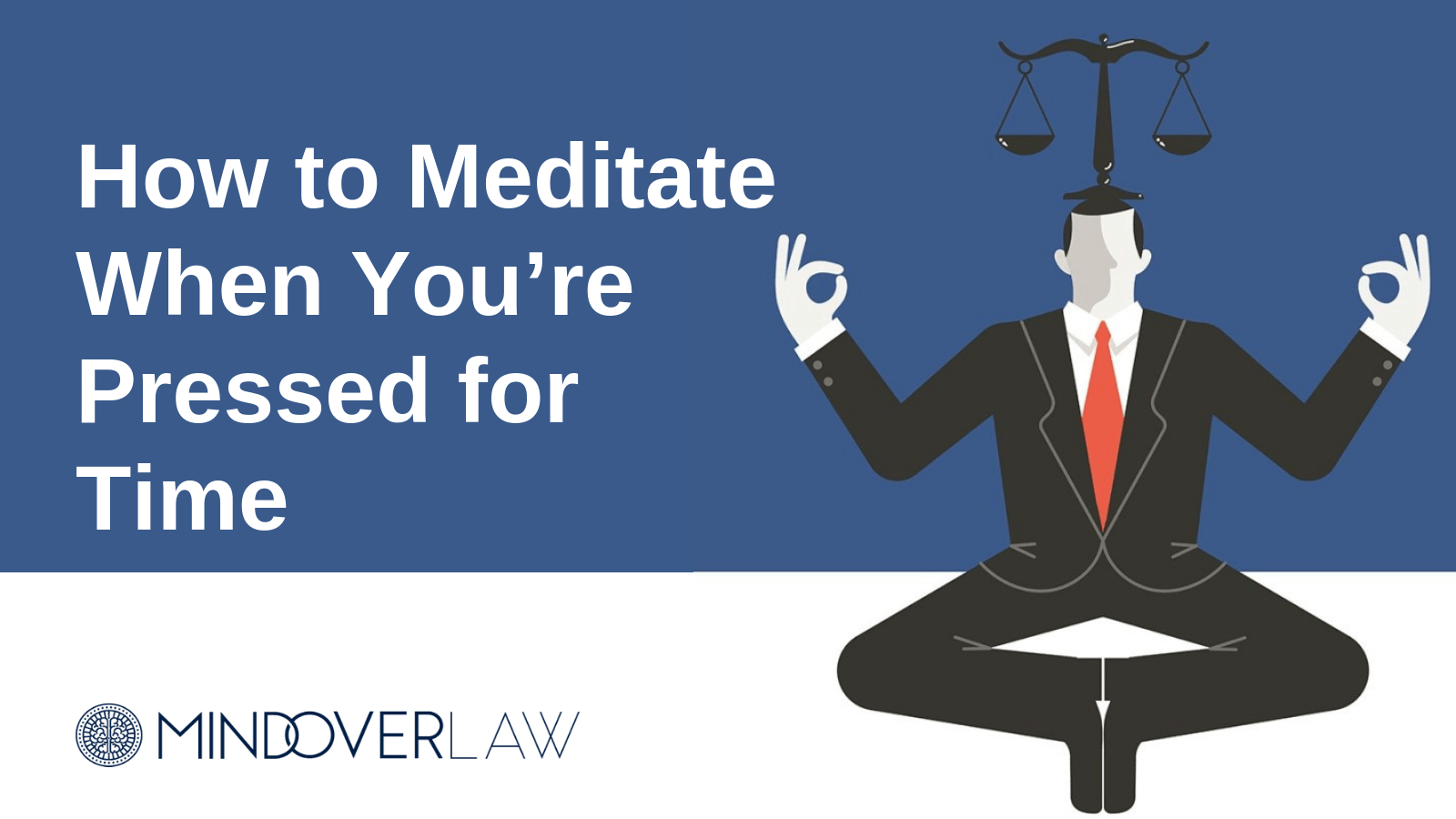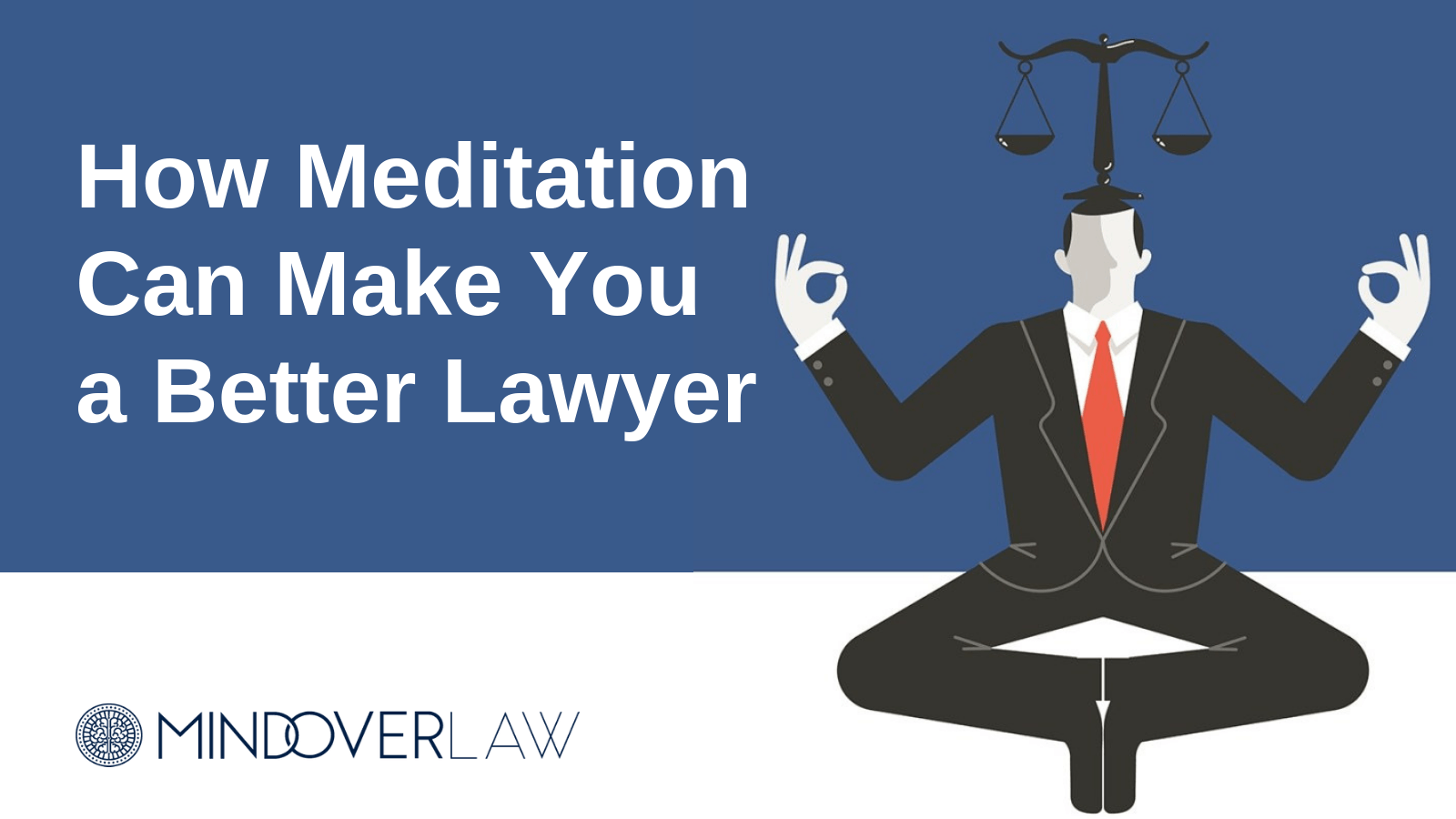The word “meditation” might conjure images of Buddhist monks in beautiful temples or remind you of a peaceful person you know but you might not necessarily associate meditation with practicing law. Did you know that law professors and professional organizations like the ABA recommend meditation? Various medical and academic disciplines recommend meditation including psychologists and family physicians, too.
This ancient practice of training the mind to block out unwanted thoughts offers abundant benefits to lawyers, especially. From sharpening the mind and reducing stress to controlling anxiety and anger, meditation can help you on professional and physical levels.
People from all walks of life can benefit from meditating on a regular basis. More than likely you know a person who meditates—it might be your neighbor, your Yoga teacher, or a colleague.
The Science Behind Meditation’s Benefits
Meditation can make you feel more positive, calmer, less stressed, and more in control of your emotions. It can also make you feel like you possess a heightened sense of clarity and awareness.
Beyond feeling these positive results; science backs them up. Here are some evidence-based benefits of regular meditation:
- A study of 18 individuals over three years found that regular meditation practices helped them maintain lower anxiety levels after an initial 8-week meditation course.
- More than 3,500 adults who participated in a meditation study believe that regular meditation reduces their stress levels.
- Reduces neurogenic inflammation.
- Pain reduction.
- Regular mindfulness meditation can improve depression based on a study published by Cognitive Therapy and Research.
- According to researchers at Stanford University, meditation helps regulate your emotions and boosts your ability to empathize.
Practicing law requires tremendous mental acuity, self-control, and energy. Regulating your thoughts and emotions can ease the stresses of your professional life along with personal challenges and setbacks.
Meditation Myths
Myths about meditation abound. Here are some common ones:
- Meditation is only spiritual in nature and reserved for the religious.
- Not everyone can meditate.
- Meditation is too time consuming.
These myths might keep you from the benefits of meditation. The truth is that meditation can help those who are religious and those who aren’t. Meditation doesn’t just work for a select few; in fact, learning to meditate is a skill that everyone must practice. Incorporating meditation into your life doesn’t have to be time consuming either. You can perform meditation exercises while you shower, jog, or during a 15-minute work break.
MindOverLaw provides lifestyle coaching for attorneys throughout the United States. Follow us on Facebook, Instagram & Twitter to learn more about how to become the happiest lawyer you know!



